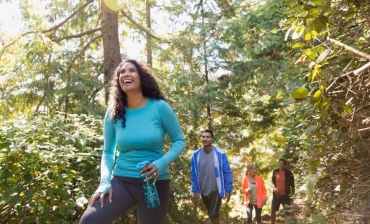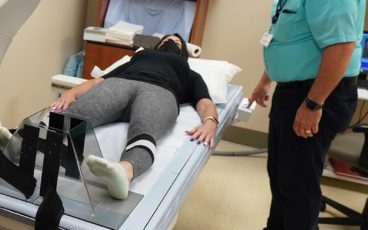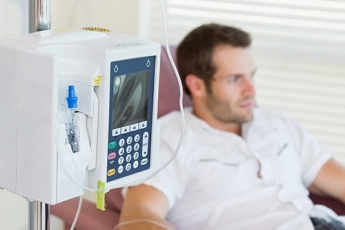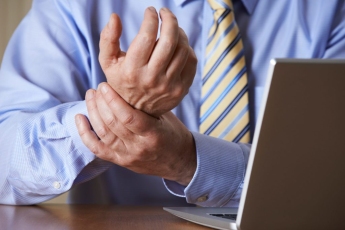A woman’s risk of breaking a hip is equal
to her risk of breast, ovarian and uterine
cancer combined, according to the National
Osteoporosis Foundation (NOF).If you’re a woman over the age of 50, the answer unfortunately is yes. According to the National Osteoporosis Foundation (NOF), 80% of the people in this country with the disease are women. That’s because women, who have smaller, thinner bones than men to begin with, lose the protective value of the hormone estrogen once they reach menopause. Estrogen helps keep bones strong, but as estrogen decreases with the onset of menopause, women’s bones can become weaker and more fragile.
Osteoporosis is also known as “brittle bone disease,” and is the leading cause of bone fractures in our aging population. So what’s a woman to do? Clearly, not much can be done about age or gender, but there are risk factors that can be controlled. IBJI doctors and the NOF have identified the following contributing factors that can help:
- Getting enough calcium and vitamin D
- Eating enough fruits and vegetables
- Keeping protein, sodium and caffeine intake under control
- Having an active lifestyle
- Not smoking
- Practice moderation in alcohol consumption
Addressing these risk factors is important, say IBJI doctors, as statistics show that one in two women over the age of 50 will get osteoporosis. A Bone Density Test (DXA) can help diagnose osteoporosis and determine bone health status, as well as enable you and your doctor to track changes in bone strength. Women no longer have to accept osteoporosis and its ramifications as a “given.” Set up an appointment with one of the IBJI experts to assess your risk—then, based on those findings, your doctor will work with you to develop a comprehensive treatment approach based on your individual risk factors, lifestyle, and bone density results.
*This content is for information only and is not intended to replace the diagnosis, treatment, or medical advice from your treating healthcare professionals. The content does not provide medical advice, does not constitute the practice of medicine or other healthcare professional services, and does not create a doctor-patient relationship. You should not rely on this information as a substitute, nor does it replace professional medical advice, diagnosis, or treatment. If you have concerns or questions, seek the advice of your healthcare professionals. If you think you may have a medical emergency, call your doctor or 911 immediately. Do not rely on electronic communications or communicate through this website for immediate, urgent medical needs. This website is not designed to facilitate medical emergencies. The use of the information is at the reader’s own risk. The links are provided for information and convenience only. We cannot accept responsibility for the sites linked or the information found here. A link does not imply an endorsement of a site.




